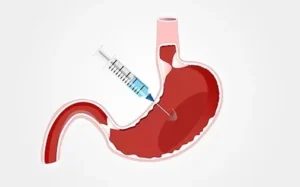
Gastric sleeve
We use the best and latest Gastric Sleeve techniques to guarantee you get the best results.
Gastric Sleeve Surgery: Benefits, Risks, and What to Expect
Gastric sleeve surgery, also known as sleeve gastrectomy, is a popular weight-loss procedure designed to help individuals with obesity lose significant weight and improve health conditions related to excess weight. This minimally invasive surgery has transformed many lives by providing a sustainable solution for weight loss, reducing risks associated with obesity, and increasing overall quality of life. Understanding the details of gastric sleeve surgery, including preparation, the surgical process, and recovery, can help patients make informed decisions and prepare for life-changing results.
What is Gastric Sleeve Surgery?
Gastric sleeve surgery, or sleeve gastrectomy, is a bariatric procedure in which a large portion of the stomach is removed, reducing its size by approximately 75-80%. The remaining portion of the stomach is a thin, tube-like “sleeve” that limits food intake and helps patients feel full more quickly. This surgery not only restricts calorie intake but also affects certain hunger-regulating hormones, which can further support weight loss efforts.
This procedure is performed laparoscopically, meaning it requires only small incisions and has a shorter recovery period than traditional open surgery. It’s often recommended for individuals with a body mass index (BMI) over 40, or over 35 if they have obesity-related health conditions such as diabetes, hypertension, or sleep apnea.
Benefits of Gastric Sleeve Surgery
Gastric sleeve surgery offers a range of benefits for individuals who have struggled with obesity and its related health issues:
- Significant Weight Loss: Most patients lose 50-60% of their excess weight within the first 1–2 years following surgery.
- Improved Health Conditions: The procedure can improve or even resolve many obesity-related conditions, including type 2 diabetes, high blood pressure, and joint pain.
- Reduced Hunger: Gastric sleeve surgery affects ghrelin, the “hunger hormone,” often resulting in reduced appetite.
- Enhanced Quality of Life: Weight loss can improve physical mobility, increase energy levels, and enhance self-esteem.
- Minimally Invasive: With laparoscopic techniques, this procedure generally has a shorter recovery period and less postoperative pain compared to open surgery.
How to Prepare for Gastric Sleeve Surgery
Preparation for gastric sleeve surgery is comprehensive, involving lifestyle changes, medical assessments, and support planning:
- Medical Evaluations: Candidates undergo several tests, including blood tests, imaging, and possibly a psychological assessment. These steps confirm whether they’re suitable for surgery and identify any underlying conditions.
- Nutritional Counseling: Many surgeons require patients to consult with a dietitian before surgery to understand the dietary changes needed post-surgery.
- Preoperative Diet: In the weeks leading up to surgery, patients may need to follow a low-calorie diet to reduce liver size, which makes the procedure safer.
- Lifestyle Adjustments: Quitting smoking and abstaining from alcohol are essential to improve healing and reduce complications.
- Support System: Since recovery requires time and assistance, having a support system in place can make a positive difference in the postoperative period.
What to Expect During the Gastric Sleeve Procedure
Gastric sleeve surgery is performed under general anesthesia and typically takes about 1 to 2 hours. Here’s what happens during the procedure:
- Small Incisions: The surgeon makes several small incisions in the abdomen to insert a laparoscope and surgical instruments.
- Stomach Reduction: The surgeon removes about 75-80% of the stomach, leaving a narrow, sleeve-like portion.
- Stapling and Closure: The new stomach shape is stapled shut, and the incisions are closed with sutures.
- Minimizing Complications: Throughout the procedure, the surgeon carefully monitors to prevent issues such as bleeding or leakage from the staples.
Recovery After Gastric Sleeve Surgery
Recovery from gastric sleeve surgery involves gradual progression through dietary stages, post-op care, and lifestyle adjustments:
- Hospital Stay: Most patients stay in the hospital for 1–2 days after surgery for observation and initial recovery.
- Dietary Progression: The post-op diet progresses from clear liquids to pureed foods, then to soft foods, and finally to solid foods over the course of several weeks. This gradual reintroduction allows the stomach to heal.
- Activity Levels: Light activities can usually resume within a week, while strenuous exercise should be avoided for at least a month.
- Follow-Up Appointments: Regular check-ins with the surgeon and dietitian help monitor progress, track weight loss, and provide support in adapting to lifestyle changes.
- Long-Term Commitment: Successful weight loss after gastric sleeve surgery requires a lifelong commitment to healthy eating, regular physical activity, and ongoing medical care.
Potential Risks and Complications of Gastric Sleeve Surgery
While gastric sleeve surgery is generally safe, it does come with potential risks, including:
- Nutritional Deficiencies: Due to reduced food intake, patients are at risk of vitamin and mineral deficiencies and may require lifelong supplementation.
- Staple Line Leaks: Leakage from the staple line in the stomach is a rare but serious complication that may require additional surgery.
- Blood Clots: As with any surgery, there’s a risk of blood clots, particularly in the legs.
- Gastroesophageal Reflux Disease (GERD): Some patients may develop acid reflux after the surgery, which may require medication or lifestyle changes.
- Weight Regain: Although the procedure helps with weight loss, lifestyle changes are essential to maintaining results long-term. Some patients may regain weight if they don’t adhere to their dietary and exercise recommendations.
FAQs about Gastric Sleeve Surgery
How much weight can I expect to lose with gastric sleeve surgery?
On average, patients lose 50–60% of their excess weight within the first 1–2 years. Individual results may vary based on diet and activity levels post-surgery.
Is gastric sleeve surgery reversible?
No, gastric sleeve surgery is not reversible. The removed portion of the stomach cannot be replaced, so it’s important to consider this as a permanent solution.
What is the recovery time for gastric sleeve surgery?
Most people can resume light activities within a week, but full recovery typically takes a few weeks. Patients should avoid strenuous activities for about a month.
Will I need to take vitamins after gastric sleeve surgery?
Yes, due to reduced stomach capacity, patients often need to take vitamins and supplements for life to prevent nutritional deficiencies.
Can I still eat my favorite foods after surgery?
While no foods are strictly “off-limits,” portion sizes will be smaller, and it’s best to avoid high-calorie, nutrient-poor foods to achieve weight loss goals.
Is gastric sleeve surgery covered by insurance?
Many insurance plans cover bariatric surgery, but it’s best to check with your provider to determine your coverage options.
Conclusion
Gastric sleeve surgery can offer a life-changing solution for individuals struggling with obesity and related health issues. By reducing the stomach’s size, this procedure promotes significant weight loss and helps patients adopt healthier eating habits. However, like any major surgery, gastric sleeve surgery requires careful consideration, preparation, and commitment to lifelong changes in diet and lifestyle. Consulting with an experienced medical provider and maintaining a support system can make the transition to a healthier, more active life smoother and more sustainable. For those eligible, gastric sleeve surgery can be a powerful tool in achieving weight loss goals and improving overall well-being.
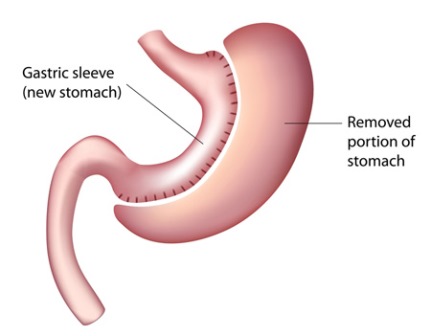
What to expect after Gastric Sleeve
Because the surgery makes your stomach smaller, you will get full more quickly when you eat. You probably will lose weight very quickly in the first few months after surgery. As time goes on, your weight loss will slow down. You can expect most of your weight loss to happen in the first 12 months after your surgery.
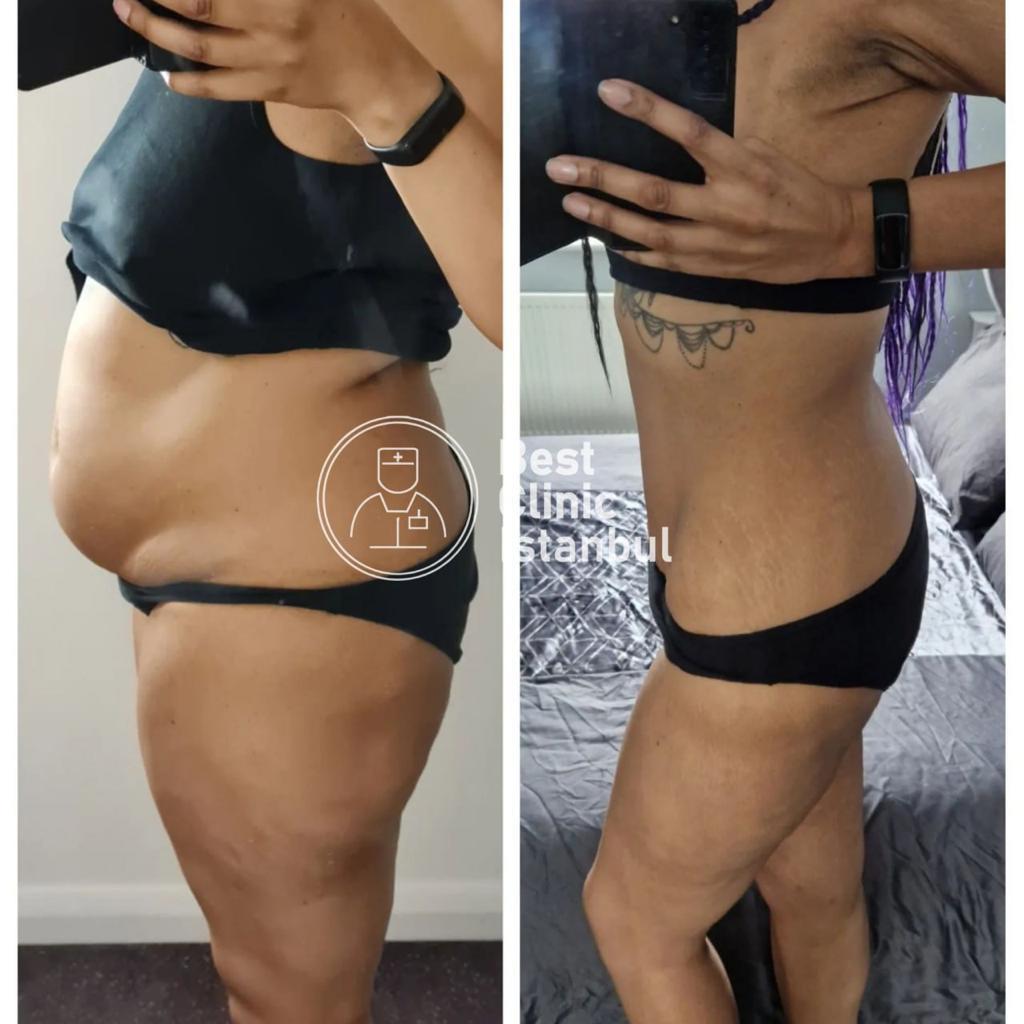

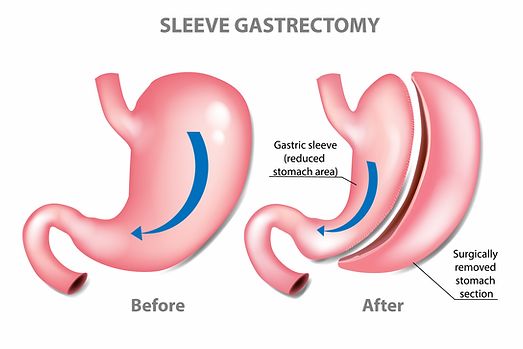

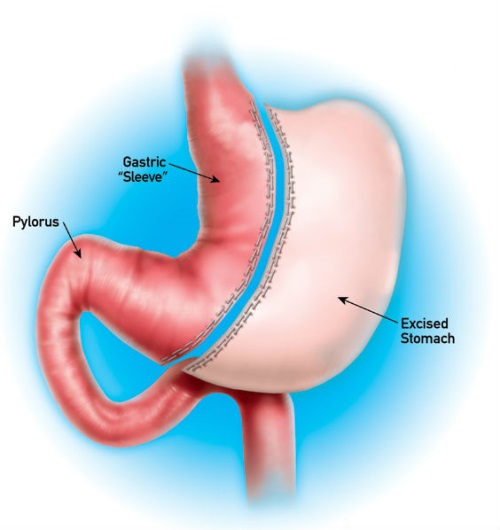


Why might I need gastric sleeve surgery?
Gastric sleeve surgery is used to treat severe obesity. It’s advised for people who have tried other weight loss methods without long-term success. Your doctor may advise gastric sleeve surgery if you are severely obese with a body mass index (BMI) over 40. Your doctor may also advise it if you have a BMI between 35 and 40 and a health condition such as sleep apnea, high blood pressure, heart disease, or type 2 diabetes.
Start the change and get the most out of your style with Gastric Sleeve operation in Turkey
Make a free consultation with us.
Get Offer Now





